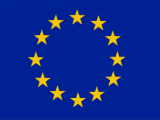Álláspont a „Commission implementing Regulation laying down rules for the application of Article 26(3) of Regulation (EU) N° 1169/2011 of the European Parliament and of the Council on the provision of food information to consumers, as regards the rules for indicating the country of origin or place of provenance of the primary ingredient of a food where different to that given for that food” című tervezetre
Az Élelmiszervállalkozók Versenyképességéért Egyesület 2016. február 18-án kelt észrevételében javasolta a Tervezet 7. Cikkében foglalt, az eladásra utal.
„may continue to be sold” kifejezés helyett – az 1169/2011/EU rendelet 54. Cikkének (1) bekezdésében is megtalálható – „may be marketed” kifejezés alkalmazását a jogszabályi koherencia megteremtése érdekében. Javasoltuk továbbá a Tervezet 7. Cikkében foglalt„lawfully” kifejezés és az „EU market” kifejezésből az „EU” szó törlését, tekintettel arra, hogy az EU piaca a belső piacot jelenti, amelyre csak jogszerűen előállított termék kerülhet.
Örömmel vettük, hogy javaslatunkat Magyarország a 2016. február 22-i munkacsoporti ülésen képviselte, amelynek eredményeképpen a Tervezet jelenlegi 4. Cikkének (3) bekezdése összhangba került a 1169/2011/EU rendelet 54. Cikkének (1) bekezdésével és a 178/2002/EU rendelet 11. Cikkével.
Amint azt a 2016. május 20-i észrevételünkben jeleztük, a Tervezet a(z) (átlag)fogyasztó fogalmát a a belső piacon az üzleti vállalkozások fogyasztókkal szemben folytatott tisztességtelen kereskedelmi gyakorlatairól szóló 2005/29/EK európai parlamenti és tanácsi irányelvvel (a továbbiakban: 2005/29/EK irányelv) ellentétesen határozza meg.
A 2005/29/EK irányelv preambuluma szerint „In line with the principle of proportionality, and to permit the effective application of the protections contained in it, this Directive takes as a benchmark the average consumer, who is reasonably well-informed and reasonably observant and circumspect, taking into account social, cultural and linguistic factors, as interpreted by the Court of Justice, but also contains provisions aimed at preventing the exploitation of consumers whose characteristics make them particularly vulnerable to unfair commercial practices.”
A Tervezet 1. Cikkének (2) bekezdése ugyanakkor a következőket tartalmazza: „Any indication provided in relation to a food such as statements, terms, pictorial presentation or symbols is considered as information on the country of origin or the place of provenance of that food, when it can have such effect on the normally informed and reasonably circumspect consumer.”
Megállapítható, hogy a „reasonably circumspect consumer”, azaz „megfelelően körültekintő fogyasztó”, mint fogalom önállóan nem létezik az uniós jogban, ez a fogalom ugyanis az átlagfogyasztó fogalmának része. Ugyancsak nem található meg a „normally informed consumer”, hiszen az átlagfogyasztó nem valamilyen „normának”, például jogszabálynak megfelelően tájékozott, hanem „reasonably well-informed”, azaz ésszerűen jól tájékozott.
A tagállami jogalkotás az átlagfogyasztónak a 2005/29/EK irányelvben foglalt definícióját vette át. A fogyasztókkal szembeni tisztességtelen kereskedelmi gyakorlat tilalmáról szóló 2008. évi XLVII. törvény 4. §-ának (1) bekezdése szerint például a kereskedelmi gyakorlat megítélése során az olyan fogyasztó magatartását kell alapul venni, aki ésszerűen tájékozottan, az adott helyzetben általában elvárható figyelmességgel és körültekintéssel jár el, figyelembe véve az adott kereskedelmi gyakorlat, illetve áru nyelvi, kulturális és szociális vonatkozásait is.
Az átlagfogyasztó fogalmának „feldarabolása”, illetve újabb átlagfogyasztó definíció bevezetése jogalkalmazási bizonytalansághoz vezethet az unió egész területén. Magyarországon az átlagfogyasztó fogalmát számos alkalommal értelmezte a fogyasztóvédelmi hatóság és a Gazdasági Versenyhivatal, továbbá a bíróságok is. A jogszabályi koherencia és a következetes jogalkalmazás fenntartása érdekében javasoljuk a következő módosítást:
„Any indication provided in relation to a food such as statements, terms, pictorial presentation or symbols is considered as information on the country of origin or the place of provenance of that food, when it can have such effect on the average consumer.”
A fentiek alapján javasoltuk a következő álláspontot kialakítani.
„According to Article 1. point (1) of the Draft, „Any indication provided in relation to a food such as statements, terms, pictorial presentation or symbols is considered as information on the country of origin or the place of provenance of that food, when it can have such effect on the normally informed and reasonably circumspect consumer.”
The Directive 2005/29/EC of the European Parliament and of the Council of 11 May 2005 concerning unfair business-to-consumer commercial practices in the internal market (hereinafter referred as UCP Directive) however established the definition of the average consumer.
According to the (18) paragraph of the UCP Directive: „In line with the principle of proportionality, and to permit the effective application of the protections contained in it, this Directive takes as a benchmark the average consumer, who is reasonably well-informed and reasonably observant and circumspect, taking into account social, cultural and linguistic factors, as interpreted by the Court of Justice, but also contains provisions aimed at preventing the exploitation of consumers whose characteristics make them particularly vulnerable to unfair commercial practices.”
On these grounds, the expression of the „reasonably circumspect consumer” is part of the „average consumer” definition. Furthermore, the 2005/29/EC directive uses the „well-informed consumer” phrase instead of „normally informed consumer”.
Hungary and other Member States implemented the definition of the average consumer into their national legislation. National consumer protection authorities and courts interpreted this definition in many cases. Changing this definition would threat the coherency of the consumer protection legislation and the consistency of the enforcement.
We suggest to modify Article 1 point 1 as follows:
„Any indication provided in relation to a food such as statements, terms, pictorial presentation or symbols is considered as information on the country of origin or the place of provenance of that food, when it can have such effect on the average consumer.””
